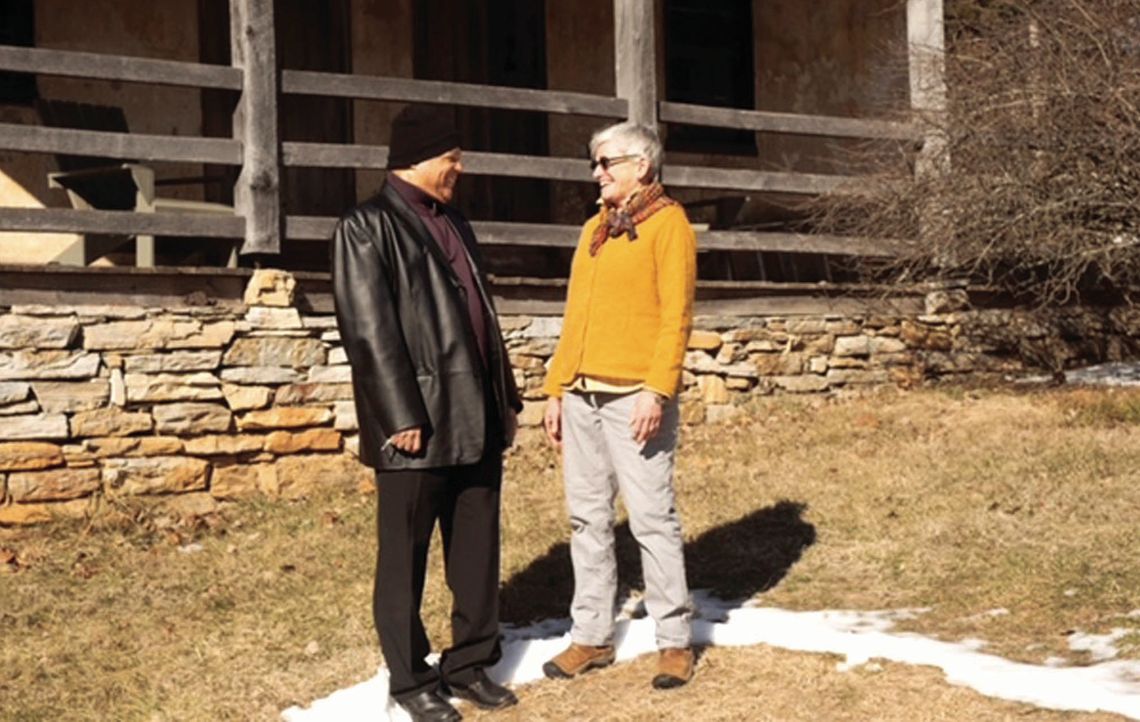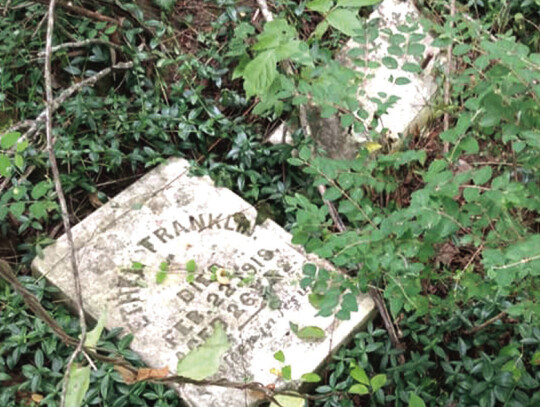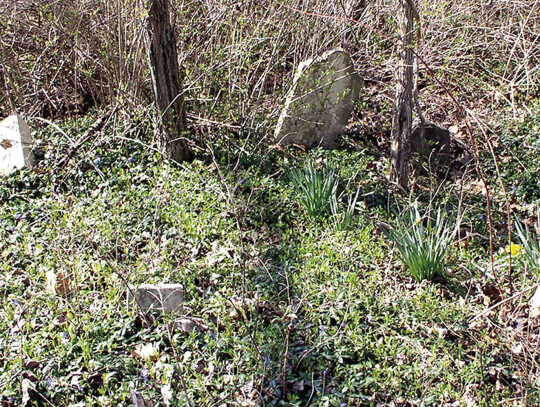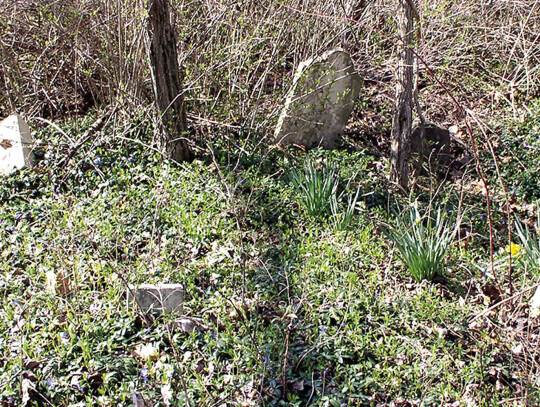Residents in the Glasgow area have formed the Mount Lydia Cemetery Historic Foundation.
The cemetery is the final resting place of formerly enslaved people who worked the forge and the fields at nearby Buffalo Forge. The organization was certified in December as a nonprofit entity by the State Corporation Commission.
The land that includes the cemetery was purchased in 1871 by those formerly enslaved from Buffalo Forge owner Daniel Brady. Brady, husband of William Weaver’s niece Emma, became owner of Buffalo Forge upon Weaver’s death in 1863. As Weaver, Brady was originally from Pennsylvania and had come to Rockbridge County to help run Buffalo Forge.
The deed for the land was signed between Brady and the Buffalo Forge Colored Baptist Church trustees James Franklin, Samuel Williams, and Andrew Franklin. Those who have read Charles Dew’s “Bond of Iron —Master and Slave at Buffalo Forge” will recognize the name Sam Williams, as well as Henry Towles, Tooler, Henry Hunt Jr., and Garland Thompson. They all worked the iron at the forge.
Many of the descendants of these men live today in Glasgow. Mt. Lydia Church, which also served as a school, burned down some 100 years ago and was never rebuilt. The successor church is Union Baptist Church in Glasgow. One of the first steps in the Mt. Lydia Cemetery Historic Foundation work plan is to transfer ownership of the cemetery to Union Baptist, which has agreed to accept ownership.
President of the historic foundation is Brandall Branch, descendant of Gar-
, page 2 land Thompson. Also on the board of the historic foundation is Susan Brady, current owner of Buffalo Forge and a descendant of Daniel Brady. Vice president of the historic foundation is Don Hasfurther, until recently executive director of Historic Lexington Foundation.
Hasfurther’s home was built for Reuben Grigsby, a neighbor and friend of Buffalo Forge owner William Weaver. Grigsby and Weaver both died in 1863 and are buried near each other at Falling Spring Presbyterian Church, originally located above Buffalo Creek on land what would become Buffalo Forge. Those enslaved at Buffalo Forge would have worshipped in the balcony pews of the church.
Once the cemetery’s ownership is transferred to Union Baptist, the historic foundation intends to clear years of brush and trees that have years grown around the graves there. The cemetery consists predominantly of sunken graves marked only by field stones. Graves of those buried around the turn of the 20th century are on the south side of the cemetery with stones marked with their names. Many of these stones have fallen and/ or cracked. The historic foundation plans to repair and reset the stones.
The creation of the foundation follows several events related to Buffalo Forge in recent years. In May 2022, HLF brought Dew to Falling Spring Presbyterian Church to talk about the research involved in his 1994 book, “Bond of Iron.” Last February, the Rockbridge Historical Society and the Rockbridge Regional Library hosted a Black History Month program entitled “Bond of Family” at the Thompson Community Center in Glasgow. That event featured comments by descendants of those enslaved at Buffalo Forge, including Brandall Branch, and Susan Brady.
.jpg)






